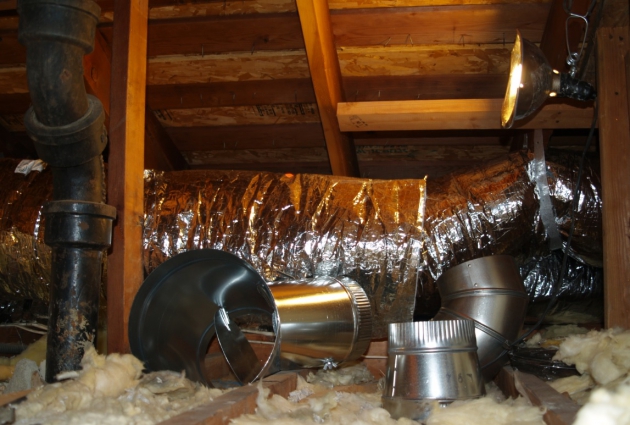How 1031 Exchanges Help You Avoid Taxes

Selling an investment property or distressed property can be a lucrative decision, but the thought of paying capital gains tax often makes sellers hesitate. Fortunately, there’s a way to defer those taxes and keep more of the profit from your sale: a 1031 exchange.
In this blog, we will explore how 1031 exchanges can help you avoid taxes on the sale of your investment property, the rules you need to follow, and how this strategy fits into your financial planning. Whether you’re selling a rental property or another type of investment property, understanding this tax strategy could significantly benefit you.
What is a 1031 Exchange?
A 1031 exchange is a tax strategy that allows property owners to defer paying capital gains tax on the sale of an investment property by reinvesting the proceeds into another like-kind property. The strategy gets its name from Section 1031 of the IRS Code, which outlines the process of deferring tax liability in this manner.
For sellers who are motivated to move quickly and avoid paying hefty taxes, a 1031 exchange provides a way to reinvest the profits from the sale of a property into a new investment property. By doing so, you can defer paying capital gains tax until you eventually sell the new property.
How Does a 1031 Exchange Work?
In simple terms, a 1031 exchange allows you to sell one investment property and buy another of equal or greater value, without incurring immediate tax consequences. As long as you reinvest the sale proceeds into a new like-kind property, you can defer paying capital gains tax on the appreciation of the property, allowing you to use those funds for future investments.
There are specific requirements for completing a 1031 exchange. The first requirement is that the properties involved must be considered like-kind properties. In other words, they must both be for business or investment purposes. The second requirement is the timeline. You must identify a replacement property within 45 days of selling the original property and close on the replacement property within 180 days. Lastly, a third-party intermediary is required to facilitate the exchange and hold the sale proceeds until the new property is purchased.
If you meet these requirements, a 1031 exchange allows you to defer the taxes associated with the sale of your original property and reinvest in a new property, all while postponing tax obligations.
Benefits of a 1031 Exchange for Sellers
There are several advantages to using a 1031 exchange when selling a property. The most significant benefit is tax deferral, allowing you to delay paying capital gains tax and reinvest your profits in a new investment property.
When you sell a property for more than you paid for it, you’re required to pay capital gains tax on the profit. A 1031 exchange helps you defer that tax payment, which could be a substantial amount, and reinvest in another property to continue building your wealth.
By deferring capital gains tax, you can increase your ability to reinvest the full proceeds from the sale into a new property. This enables you to purchase a larger or more profitable property, potentially boosting your investment returns over time.
Additionally, 1031 exchanges help you preserve your long-term investment strategy by allowing you to shift your property holdings without triggering immediate tax consequences. This means you can continue building your portfolio of real estate investments while avoiding tax liability for as long as you continue to reinvest.
Common Questions About 1031 Exchanges1. What properties qualify for a 1031 exchange?
A 1031 exchange applies to properties used for business or investment purposes. This includes rental properties, commercial real estate, and vacant land. It does not apply to primary residences or properties held for personal use.
2. How much of the sale proceeds do I need to reinvest to avoid taxes?
To fully defer the capital gains tax, you must reinvest the entire amount you received from the sale of the original property into a new like-kind property. If you reinvest less than the full amount, the portion you don’t reinvest may be subject to tax.
3. What happens if I don’t complete the exchange?
If you don’t complete the exchange within the designated time frame or fail to reinvest the full proceeds, you’ll be subject to capital gains taxes on the sale. It’s essential to follow the rules closely to avoid these penalties.
4. Can I exchange one property for multiple properties?
Yes, it is possible to exchange one property for multiple properties, as long as they meet the requirements for a 1031 exchange. This can be a strategic move if you want to diversify your investments.
5. How long can I defer taxes with a 1031 exchange?
You can continue deferring taxes as long as you keep reinvesting your profits into like-kind properties through a 1031 exchange. However, when you eventually sell a property and cash out without reinvesting, you’ll need to pay the accumulated taxes.
How to Leverage a 1031 Exchange in Your Property Sale
If you’re a motivated seller who wants to take advantage of a 1031 exchange, it’s important to consult with a tax professional or real estate expert to ensure you’re following all the legal requirements and tax regulations. Understanding how a 1031 exchange fits into your financial planning can help you maximize your returns and minimize your tax obligations.
At Memphis Offer, we understand that selling an investment property can be a complex process, especially when trying to navigate tax implications. Our team can help you explore your options, including utilizing a 1031 exchange, to maximize your profits and reduce your tax liabilities.
If you’re considering selling your property, we can provide you with a cash offer and guide you through the hassle-free process of completing a 1031 exchange. This way, you can continue building your real estate portfolio without having to pay immediate taxes on your capital gains.
Visit us to learn more about how a 1031 exchange can benefit your property sale and help you defer capital gains tax while expanding your real estate investments.





